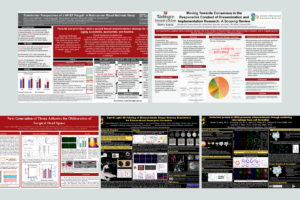Christine O’Brien, PhD, an assistant professor of biomedical engineering at Washington University in St. Louis, was recently granted $2.8 million from the NIH to develop a wearable device to track blood loss to prevent postpartum hemorrhage – the leading cause of maternal death worldwide. The goal is to design a wearable device that tracks blood […]
WashU Investigator credits ICTS resources and funding on her path to $2.8 million grant from the National Institutes of Health (NIH)









